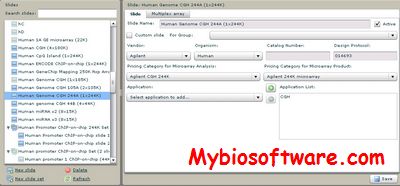pgltools 2.2.0
:: DESCRIPTION
Pgltools is a genomic arithmetic software suite designed for working with paired-loci genomic data, such as contacts from a Hi-C or ChIA-PET experiment, and utilizes the PGL file format.
::DEVELOPER
frazer Lab, UCSD
:: SCREENSHOTS
N/A
:: REQUIREMENTS
- Linux
- Python
:: DOWNLOAD
:: MORE INFORMATION
Citation
Greenwald WW, Li H, Smith EN, Benaglio P, Nariai N, Frazer KA.
Pgltools: a genomic arithmetic tool suite for manipulation of Hi-C peak and other chromatin interaction data.
BMC Bioinformatics. 2017 Apr 7;18(1):207. doi: 10.1186/s12859-017-1621-0. PMID: 28388874; PMCID: PMC5384132.

